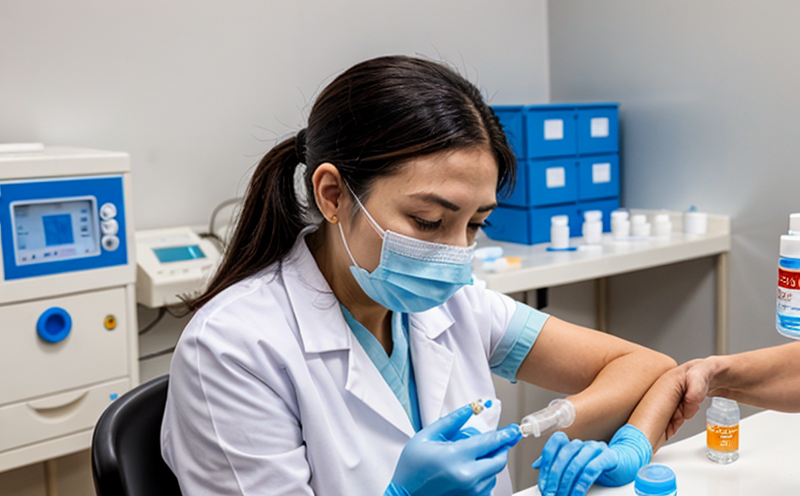EP Stability Testing of Vaccine Products
The European Pharmacopoeia (EP) stability testing is a critical component in ensuring the safety, efficacy, and quality of vaccine products. This process involves systematically evaluating how various environmental factors impact the chemical and physical properties of vaccines over time. Compliance with EP guidelines ensures that manufacturers adhere to stringent international standards, thereby safeguarding public health.
Stability testing is not just about shelf life; it also encompasses understanding the impact of temperature, humidity, light, and other environmental conditions on vaccine stability. This comprehensive evaluation helps in identifying any potential degradation processes early in the product lifecycle. By conducting rigorous EP stability tests, manufacturers can optimize storage and distribution protocols, ensuring that vaccines remain potent until their expiration date.
The testing process typically involves storing samples under controlled conditions for a specified period—often ranging from six months to several years depending on regulatory requirements. During this time, parameters such as potency, purity, content uniformity, and sterility are monitored closely. These tests provide valuable insights into the stability of different batches of vaccines, allowing manufacturers to make informed decisions about product release.
A key aspect of EP stability testing is its role in risk management. By identifying potential issues early on, companies can mitigate risks associated with suboptimal storage conditions or transportation challenges. This proactive approach not only enhances the overall quality assurance process but also contributes significantly to public health by ensuring that vaccines remain effective and safe throughout their shelf life.
| Parameter | Description |
|---|---|
| Shelf Life Evaluation | Determining the duration for which a vaccine maintains its efficacy and safety under specified storage conditions. |
| Chemical Stability | Evaluation of changes in chemical composition over time, ensuring no harmful by-products are formed. |
Why It Matters
Stability testing is crucial for several reasons. First and foremost, it ensures that vaccines remain effective and safe even after extended storage periods. This is particularly important given the global nature of vaccine distribution, where products may travel long distances under varying environmental conditions.
Secondly, compliance with EP standards demonstrates a commitment to quality and reliability, which builds trust among regulators and consumers alike. Consistent adherence to these guidelines helps maintain high industry standards and fosters confidence in pharmaceutical products.
From an operational standpoint, stability testing informs critical decisions regarding storage conditions, packaging materials, and distribution networks. It allows manufacturers to optimize their supply chain processes, reducing waste and ensuring that every batch of vaccine reaches its intended destination in optimal condition.
Industry Applications
| Vaccine Type | EP Stability Testing Application |
|---|---|
| Influenza Vaccines | Evaluating the impact of temperature variations on vaccine potency and stability. |
| Pneumococcal Vaccines | Assessing the long-term stability of polysaccharide conjugates used in vaccines. |
Customer Impact and Satisfaction
- Enhanced trust with regulatory bodies and consumers due to rigorous compliance.
- Optimized storage conditions leading to reduced waste and improved efficacy.
- Informed decision-making regarding supply chain logistics enhancing overall efficiency.





